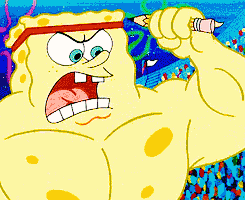**My theme for this year’s
A to Z Challenge is THE NAME GAME. Everything you’d want to know about naming
characters.**
Sometimes you may have
a particular story, or a particular character, even, and no name on this entire
planet seems to work for them. Maybe they don’t even live on this planet and
that’s the problem. Maybe they’ve just got really wacky parents. For whatever
reason, sometimes it’s necessary for you to make up a name for your character.
Of course, there are
only a few times that you’ll be able to get away with making up your characters’
names without the reader thinking you’re crazy. Genre will usually be the
deciding factor. If you’re writing something that is Fantasy or
Science-Fiction, for example, you could definitely get away with making up your
character names. If you’ve created a world that is completely separate from the
real one, then it would make sense for this world to have its own set of names.
So how do you come up
with these made up names? It could depend on the story you’re writing. Maybe
the universe you’ve created has a specific way of naming its people. Maybe they
have a different alphabet. Or you can just put different syllables together until
you come up with something that feels right. A name could reflect where your
character comes from, or even have some symbolic meaning for what kind of
character he is (good or evil, for example). You could incorporate different languages or even make up your own. You could just have fun coming up
with your original names, or find a way to put some meaning in to it.
Your characters can
have long, elaborate names, but if the reader has no idea how to pronounce
them, it might trip them up. Try to make your names understandable and not
something that makes the readers pause every time they come across them. You’ll
want to avoid anything that makes it harder for the reader to just get through
a paragraph.
If you’re writing
realistic fiction, it probably isn’t a good idea to create a fake name for a
character. If you do choose to do so, it needs to be explained. Maybe this
character’s parents wanted to create a unique name for their child. It’s
probably something that your character will have to explain to everyone he
meets. Whatever the reason for having one, if you just leave a freaky name out
there with no explanation, it may throw off the reader.
FUN TIP: If you have a non-fantasy character with a crazy, made-up
name, maybe he gets really sick of explaining it to everyone he meets and
adopts a more normal sounding nickname.
How do you come up with your Fantasy & Sci-Fi names? Do you find it
easier to make up a name or find an existing one?

















